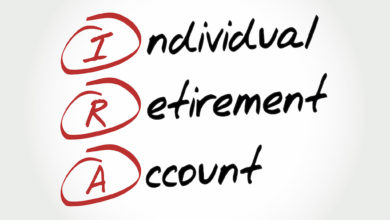
Disability Insurance 101: What You Need to Know
![]() Think of disability insurance as your financial safety net for when life decides to throw a curveball—like tripping over your own shoelaces or discovering that your couch is actually a black hole. It steps in to replace some of your income if you can’t work due to an injury or illness, so you can keep paying for the essentials while you recover.
Think of disability insurance as your financial safety net for when life decides to throw a curveball—like tripping over your own shoelaces or discovering that your couch is actually a black hole. It steps in to replace some of your income if you can’t work due to an injury or illness, so you can keep paying for the essentials while you recover.
Disability insurance plays a vital role in safeguarding income before retirement, protecting retirement savings, and ensuring financial stability in the event of a disability. It complements retirement planning by helping individuals maintain their financial goals and transition smoothly into their golden years.
What Is Disability Insurance and How Does It Work?
 Disability insurance provides a structured way to protect your income in the event of an unexpected disability. Understanding how it works can help you choose the right policy and ensure you have the coverage you need.
Disability insurance provides a structured way to protect your income in the event of an unexpected disability. Understanding how it works can help you choose the right policy and ensure you have the coverage you need.
Types of Disability Insurance:
 Both short-term and long-term disability insurance play important roles in protecting your income during times of disability, but they cater to different needs and circumstances. Having both can provide a comprehensive safety net.
Both short-term and long-term disability insurance play important roles in protecting your income during times of disability, but they cater to different needs and circumstances. Having both can provide a comprehensive safety net.
- Short-Term Disability Insurance (STDI): This typically covers you for a few weeks to a few months (usually up to 6 months). It’s designed to provide immediate income replacement after a temporary disability such as recovery from surgery, childbirth, or short-term illnesses. It’s ideal for situations where you expect to return to work soon.
- STDI DUration: Benefits usually last until you can return to work or up to the policy limit (e.g., 3 to 6 months).
- Long-Term Disability Insurance (LTDI): This covers you for a longer period, often from a few years up to retirement age, depending on the policy. It kicks in after short-term disability insurance benefits have ended. LTDI is designed for more serious, long-term conditions, such as chronic illnesses, serious injuries, or disabilities that may prevent you from working for an extended period.
- LTDI DUration: These can provide benefits for a few years or until a certain age, like 65, depending on the terms.
Application Process for Disability Insurance:
Before you even start the application process for disability insurance, it’s important to research and compare different policies based on your needs, considering factors like coverage type and premium costs. Once you select a policy, complete a detailed application that includes personal information and health history.
Depending on the insurer, you may need to undergo a medical exam and provide access to medical records for underwriting. After your application is reviewed, you’ll receive an approval or denial. If approved, review the policy documents carefully, then sign the agreement and pay your first premium to activate coverage. Throughout the process, be honest and ask questions to ensure you understand your policy.
Disability Insurance Premiums:
 You pay monthly premiums to maintain your coverage. The cost can vary based on factors like your age, occupation, health status, and the amount of coverage you choose. Some policies offer level premiums that remain the same for the life of the policy, while others may increase over time.
You pay monthly premiums to maintain your coverage. The cost can vary based on factors like your age, occupation, health status, and the amount of coverage you choose. Some policies offer level premiums that remain the same for the life of the policy, while others may increase over time.
Elimination (Waiting) Period:
Most policies have an elimination period (waiting period) that you must complete before benefits start. This can range from a few days to several months, depending on the policy.
- For short-term disability insurance policies, the waiting period is often shorter, while long-term policies may have longer waiting periods.
Benefit Amount:

 Once you qualify for benefits, the insurance pays a percentage of your pre-disability income—typically 60-80%. This ensures that you can cover most of your living expenses. Some policies also offer additional benefits, like cost-of-living adjustments, which help keep pace with inflation.
Once you qualify for benefits, the insurance pays a percentage of your pre-disability income—typically 60-80%. This ensures that you can cover most of your living expenses. Some policies also offer additional benefits, like cost-of-living adjustments, which help keep pace with inflation.
Claim Process:
As soon as you know you’ll be unable to work due to a disability, notify your insurance company. Request the necessary claim forms from your insurer and obtain the required documentation of your condition, including medical records and proof of income.
Once your claim is submitted, the insurance company will review all provided information and a claims adjuster may assess the validity of the claim based on the evidence available. After reviewing your claim, the insurer will make a decision.
- If approved, they will notify you of the benefits you will receive, including the amount and whether you need short- or long-term disability insurance benefits. Payments will typically start after your waiting period (elimination period) ends. They are usually made monthly, either directly deposited into your bank account or sent via check.
- If denied, the insurer is required to provide an explanation, which will help you understand what information was lacking or why the claim was not approved.
- Most insurers allow you to appeal a denial. This process typically involves additional information or documentation that supports your claim. Follow the insurer’s specific appeal process and timelines.
Renewal and Re-evaluation:
Some policies may require periodic re-evaluation of your condition to continue receiving benefits, especially for long-term disability insurance coverage. If your condition improves, you may be required to return to work.
Tax Implications of Private Disability Insurance:

Are private disability insurance benefits taxed? Generally, if you pay the premiums with after-tax dollars, your benefits will be tax-free. However, if your employer pays for the policy, the benefits may be taxable.
Additional Features:
Both long- and short-term disability insurance policies offer optional riders, such as:
- “Own occupation” coverage, which pays benefits if you can’t perform your specific job, even if you can work in another capacity.
- LTDI policies often have cost-of-living adjustments (COLA) to help your benefits keep pace with inflation or return-to-work provisions that provide support as you transition back to employment.
Why Is Disability Insurance Worth Having?
Disability insurance acts as a financial lifeline during unforeseen circumstances, protecting your income and providing peace of mind for you and your loved ones. It’s an investment in your future financial stability. Disability insurance is worth having for several reasons:
- Financial Security: Without disability insurance, a sudden inability to work can lead to significant financial strain. This insurance helps cover essential expenses like rent, mortgage, utilities, and groceries, ensuring you can maintain your standard of living even during tough times.
- Income Replacement: Most people rely on their income to cover daily expenses and savings. Disability insurance typically replaces 60-80% of your income, which can make a big difference in managing bills and financial obligations.
- Protection Against Unexpected Events: Life is unpredictable. Accidents, illnesses, and chronic conditions can strike at any time. Having disability insurance means you’re prepared for unexpected health issues that could sideline you from work.
- Long-Term Coverage Options: Some policies offer long-term coverage, which can provide benefits for years or until retirement. This is crucial for individuals who may face prolonged recovery times or permanent disabilities.
- Mental Health Coverage: Disability insurance often covers mental health conditions, recognizing that mental wellness is just as important as physical health. This coverage can support you during challenging times when mental health issues may prevent you from working.
- Peace of Mind: Knowing you have a safety net in place can alleviate anxiety about potential health issues. This peace of mind allows you to focus on recovery rather than financial worries.
- Supplemental Income: If you have other forms of income, like investments or savings, disability insurance can supplement that, allowing you to preserve your savings and maintain financial stability.
- Family Support: If you’re the primary breadwinner, your disability can affect your family significantly. Disability and life insurance ensure your family’s financial needs are met, allowing you to focus on recovery without added stress.
- Employer Coverage Gaps: Many employers offer some form of disability insurance, but it may not be sufficient to cover all your expenses. Having your own policy can fill those gaps and provide additional security.
Private Disability Insurance vs. Social Security Disability
Social Security requires you have the necessary work credits. They do NOT pay for partial or short-term disability and the absolute maximum benefit is $3,822 (for 2024). You have to be disabled 6 months before eligible and they deny over 60% of claims. Personal disability provides a benefit based on your actual income and allows for short-term and partial disability.
What’s Changing In Social Security’s Disability Insurance Program?
According to a report by the Social Security Administration, the Social Security Disability Insurance program is expected to deplete its reserves at the end of 2035 if changes are not made. It could result in significant funding shortfalls, allowing only about 80% of scheduled benefits to be paid to beneficiaries. This reduction would profoundly impact millions who rely on SSDI for basic living expenses.
Instead of relying on a government program to protect their income in the event of a disability, many people are opting to protect themselves with personal disability insurance. Disability insurance gives you protection by replacing a portion of your income if you become disabled as a result of an injury or illness. This addresses a two-fold financial problem. People who become disabled often find they are unable to work and are also confronted with unexpected medical expenses.
What About Workers Comp?

People often think of worker’s compensation as a disability safety net. It’s not. Worker’s compensation only pays benefits to individuals who become disabled while at work. If your disability is the result of an injury outside of work you may not qualify for worker’s compensation.
Each state makes its own rules about worker’s compensation payment and benefits, so coverage may vary considerably. It’s worth learning what your state offers so you can plan accordingly to supplement coverage on your own. Likewise, if you have an active lifestyle that puts you at a higher risk of disability, considering an extra layer of protection may be a sound financial decision.
Learn More About IFW’s Life Insurance, Disability Insurance, and Long-Term Care Planning Services
What is your most valuable asset? The answer is you and your ability to earn income. IFW’s insurance webinar We encourage anyone to register for IFW’s insurance webinar to not only learn how to best protect themselves and their families but also discover meaningful benefits and best practices when it comes to insurance and protection.
- Find out what types of insurance make sense for your unique situation
- Learn how to determine an appropriate amount of coverage
- Pay the least expensive premium while receiving the best value
- Discover how to use life insurance as a unique financial tool
- Plus, every participant will receive a free IFW Insurance Personal Report, including a review of all their current insurance and recommendations to improve their risk management program.
The IFW provides valuable financial education, resources, and services that help people live their best lives.
Evan Sussman is honored to serve as Senior Vice President for IFW. Evan has been a successful financial professional for over 17 years. On December 24th 2019, Evan was diagnosed with Stage 3 cancer, and is currently on the road to full recovery. He is forever indebted to the doctors, nurses, and staff that took care of him. Evan has dedicated his career to helping people secure their financial health and well-being.







